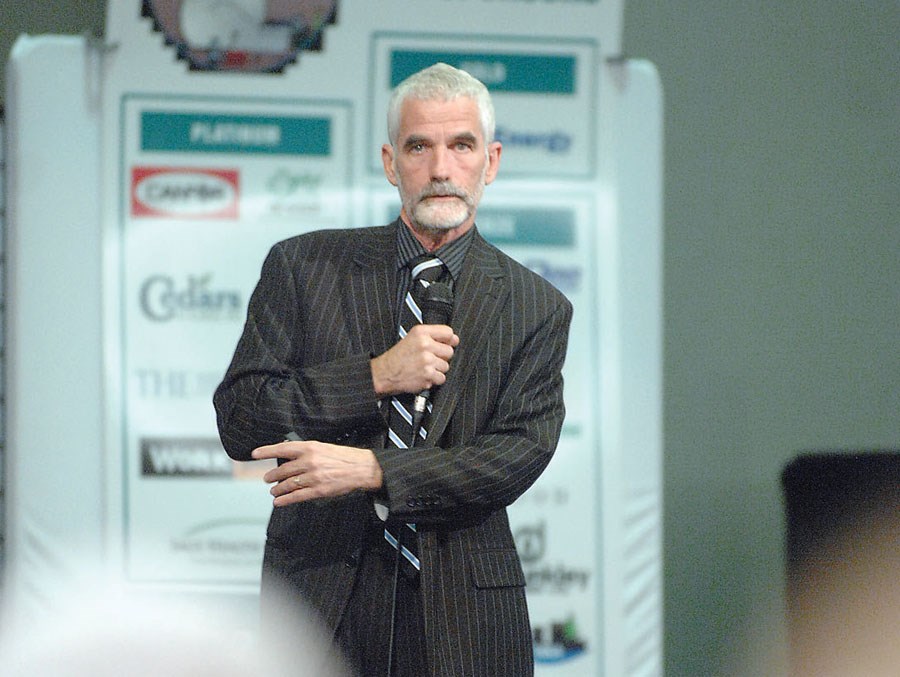A conference on dealing with drugs and alcohol in the workplace opened Thursday with a keynote speaker who has personal experience on both sides of the issue.
Dr. Ray Baker was once a small-town general practitioner but upon coming to terms with a serious alcohol problem of his own, now supervises the medical monitoring of workers back on the job while recovering from addictive disorders.
"This is kind of full circle," Baker told an audience of about 170 at the Westwood Mennonite Brethren Church.
Among the messages he delivered was that there is a difference between substance abuse and addiction - now known as substance abuse disorder by the medical community - and it lies in what the person does after the blackout or particularly embarrassing moment.
"The thing is, if you don't have an addiction, it only happens once and it never happens again," Baker said. "The blackout scares the hell out of them, they change their behaviour. But the substance abuse disordered person, because of the importance, salience, compulsion of the drug use, they'll do it again and again and again."
Recognizing a problem with addiction in a coworker or an employee can be tricky because the telltale signs can mimic most mental disorders - depression, anxiety, extreme mood swings.
But there are telltale signs including increased absenteeism and interpersonal conflict, changes in appearance, decreased productivity and accidents or near misses while on the job.
Baker estimated about 20 per cent of patients really do have a psychiatric disorder to go along with an addiction.
As for the rest, depression is often linked to use of alcohol and marijuana, psychosis to stimulants like cocaine, anxiety to sedatives and chronic pain to continued use of painkillers. That may sound counterintuitive but Baker said the brain will adjust to the dosages and withdrawal symptoms will follow.
While most people will recover, the addict won't be a happy person despite being off the substance.
"Staying stopped and learning to stay stopped, that only gets me to the point of being a dry drunk," Baker said. "That gets me to the point of being restless and irritable and unable to comfort myself.
"Recovery from addiction is learning how to be happy, learning all those other things I have to do in order to comfort myself because I have a brain that's broken."
Baker has been clean and sober for nearly 30 years but still needs to take those steps himself. Prime among them is exercise as Baker is an avid runner who has competed in several marathons and while he calls the pastime an addiction, it's one with a positive mental health payoff.



